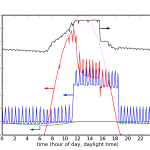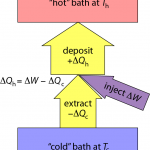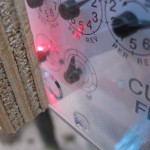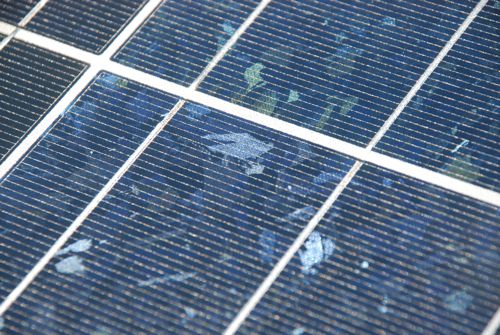[A parallel treatment of some of this material appears in Chapter 6 of the Energy and Human Ambitions on a Finite Planet (free) textbook.]
 If you want to make your house more efficient at repelling the unpleasantness outdoors (whether hot or cold), what should you do first? Insulate the walls? Insulate the ceiling? The roof? Better windows? Draft elimination? What has the biggest effect? While I have regrettably little practical experience tightening up a house (it’s on my bucket list), I at least do understand heat transfer from a physics/engineering perspective, and can walk through some insightful calculations. So let’s build a fantasy house and evaluate thermal tradeoffs at 1234 Theoretical Lane.
If you want to make your house more efficient at repelling the unpleasantness outdoors (whether hot or cold), what should you do first? Insulate the walls? Insulate the ceiling? The roof? Better windows? Draft elimination? What has the biggest effect? While I have regrettably little practical experience tightening up a house (it’s on my bucket list), I at least do understand heat transfer from a physics/engineering perspective, and can walk through some insightful calculations. So let’s build a fantasy house and evaluate thermal tradeoffs at 1234 Theoretical Lane.
Views: 7670





